The Undying Allure of the Vampire
An essay on existential dread, bisexual panic, and flirting with your demons
October is here again, praise darkness. Anyone else here exhausted by the summer? Just me? Alright, well, let me tell you why autumn is my favorite time of year, which is coincidentally the same reason why vampires will never go out of style.1
‘Tis the Season
Take a look outside at the moon; every month it cycles from invisibility to a brightness that can wash out the stars. I argue that there’s a time and place for swooning spring love stories, explosive summer blockbusters and those cozy winter reads by the fire. The draw of these stories, like the disc of the moon, waxes and wanes but never fully disappears. We in the northern hemisphere naturally turn inward as we hurtle towards the winter solstice, as darkness reigns and cold settles in. Enter autumn, the vampire, and the time — thank Nyx — for the pull of night’s endless shadows.
Those shadows we feel are the stories probing the dark corners of the human psyche and those pesky anxieties that keep us up at night. All monsters of the season have their metaphors:
Zombies? Fear of disorder, chaos, and end of civilization.
Werewolves? Fear of animal instincts taking over human intelligence.
Ghosts? Fear of the unknown, of being forgotten, of dying with a heavy conscience.
Witches? Yeah no, this is plain old misogyny, witches are not monsters.
But vampires… vampires embody human anxieties around death, desire and obscurity.2 The appeal is timeless, especially here in the violent, formerly-puritan West. Death and sex remain taboo topics in most corners of public discourse, so monsters show up to scare society straight. Except, well, it backfired.

Origins of the Modern Vampire
For the purposes of this article I’m only interested in the Romantic interpretation (capital-R as in Romanticism) and the subsequently-influenced narratives of the 20th and 21st centuries. But rest assured: nocturnal, immortal blood-drinkers pop up in mythologies from all over the world.
Bram Stoker re-imagined local folklore to create the liminal figure of Dracula in the image of wayward bisexual Lord Byron. His story tapped into the anxieties of the time, primarily the rational west (Britain) vs. exotic east (Romania/Anywhere-Not-Britain), and nostalgia for past grandeur vs. an uncertain future of urbanization. The sophisticated monster in the decaying castle communicated the restless anxieties of imperialism to its audience. Moreover, Stoker wrote from the perspective of a queer Irishman in the language of his overlords during the time of Oscar Wilde’s infamous trial. All this subtext is infused into the vampire as the sympathetic but corrupted outsider, the misunderstood lone figure, the shadow of a man who, regretfully, cannot be one of “us” — us, modern and mannered society; us, the day-walkers; us, the ‘winners of imperialism.’3
Stoker’s Dracula was a villain, yes, but one to empathize with. That’s the key shift. Stoker knew what it was like to exist on the fringes of high society and thus drenched his narrative in longing.
From here, it not a stretch of the imagination to see how the vampire romance genre emerged, and how the (often brooding) vampiric heroes of recent fame inherited Stoker’s legacy: Lestat de Lioncourt & Louis du Pointe de Lac; Eric Northman & Bill Compton; the Salvatore brothers; Edward Cullen. Mads Mikkelson’s rendition of Hannibal Lecter blurs the line a bit here, but that’s another essay.
These vampires are all portrayed as attractive, but dangerous. A lover, but a killer. They’re villains, but not really, right…? Maybe… they’re just a bit different from everyone else? Right, Louis?
As all monsters do, vampires exist to help us confront our fears. And generally speaking, we Westerners fear death and those desires that run contrary to what we “should” feel. We humans fear the darkness inside ourselves, and we fear the violence we’re capable of. Vampires dress these fears up in smart clothes and sexy accents and ask us, slyly, “Well, aren’t you going to run?”
Vampires dress these fears up in smart clothes and sexy accents and ask us, slyly, “Well, aren’t you going to run?”
….Not me, that’s for sure. These fears defined my own coming out process, during which vampire stories were a lifeline of blood-soaked rainbows. I remember watching the 1994 adaptation of Anne Rice’s Interview With The Vampire on TV as a preteen, conscious it was problematic as all hell but still unable to look away, because I recognized that element of forbidden desire resonating in my very veins.
While my queerness led me to vampires, the experience of repressed want is universal. Who on this earth hasn’t yearned for something they can never have?
Vampires, with their effortless powers of attraction and with their long lives guaranteed, stoke those mortal fears of death and the unknown. They ignore society’s normative mating rituals and trespass into hedonistic pleasure-seeking. For us humans, mortality and sexuality are heavily controlled topics in public discourse. These topics come with euphemisms and taboos; breaking the rules leads to derision and ostracism.
But vampires are not humans. They are monsters. And as monsters, vampires are able to indulge in sex and defy death at will.
Heh. I told you their appeal is timeless.
(Aside: watch this video essay on the problematic trope of confederate vampires so history will not repeat itself, please and thank you.)
Death
Who would you be, if you could live forever? So many of us ache to break free from hustle culture and external expectations. Vampires never have to worry about this. They exist outside the thankless rat-race of capitalism. They can fill their time pursuing only what the heart desires. Humans are lucky if they experience eight or nine decades, and most of that time is spent working. We live furiously fast to experience all we can of life because we don’t know when it will end. Imagine having all the time in the world… talk about longing!
Blood is of course the perfect metaphor for this. Menstrual blood denotes the capability of sustaining life. Spilling blood leads to ending life. Humans could not exist without blood; bloodlines, lifeblood, afterbirth, and the examples go on. Blood is inexorably tied to life, and through it, vampires gain their immortality. By forgoing the constant human hunger for food, vampires instead live forever by feeding on us: vampires drink and gain life from the bitten human. Which means that in societies with deeply christianized roots (aka Western societies), whose religion demands piety for a chance at immortality, drinking blood from fellow humans cements the vampires’ moral bankruptcy. Their impurity. Their inherent violence.
Scary stories tell us that even if we wish to live forever, it is unnatural to walk the footsteps of the vampire. For this reason we see many narratives featuring vampires-as-serial-killers and vampires-as-mindless-blood-addicts, LeSigh. Even more often we see vampires who treat humans as dinner walking. Still, there’s an unspoken empathy for the vampire who only kills for self-preservation. What would you do to stay alive, if worst comes to worst?
(I understand why some creators have their vampires subside on animal blood to avoid this moral quandary, but doing so weakens the whole vampiric metaphor. I simply can’t ignore the whiff of bestiality. And yes, Twilight, I’m judging you.)
Subsiding on borrowed human life, vampires are intimately acquainted with death. They break the rigid taboos around end-of-life and imply an untamed, violent nature. But there’s one thing the vampire is not afraid of: death. Vampires laugh in the face of our existential dread. And that’s the draw, despite the terror.

And what could be more terrible than a life soaked in blood?
Sex
In case you haven’t noticed, you live in a society where heteronormativity is strictly enforced, and its expectations are stifling for literally everyone involved. But not vampires. They’re free from any of those expectations. They’re monsters.
For us mere mortals however, civilized society instills appropriate behavior for boys and for girls until children are old enough to bully each other into gendered groups, and thus ostracize those who “misbehave.” The queer population caught on quick as a matter of survival, but its harmful lessons stick to us all.
Women should be modest (but “vamps” certainly are not).
Men shouldn’t cry (but boy vampires have feelings, such intense feelings!).
As adults, the idealized life program is monogamous and married, raising children in a nuclear family, owning a house, and keeping a steady job. Oh, you want something different? Then you’re a monster, too.
Villainous vampires are portrayed as unbelievably, irresistibly attractive in order to tempt the upstanding individual into sinful misdeeds. Resisting their charms takes “heroic” effort because they are sexual connoisseurs who live by their libido. They don’t care about monogamy and no-sex-until-marriage. They’re thirsty. And they’re staring your throat.
…Again, blood enters as the perfect metaphor.
Pulsing blood makes humans hot, passionate, sexual beings, and I mean that quite literally. Our cardiovascular systems works hard to keep us in thermal equilibrium (read: alive). Exercise, excitement and arousal will cause that body temperature to rise. Sexual organs grow and fill with blood under stimulation. Synonyms of passionate include red-blooded, hot-blooded. I argue when vampires “hunger” for blood, it is a deeply sexual desire as much as an existential one.
Since vampires don’t care much about the gender the human they bite, this makes them bisexual. Or pansexual. The definitions overlap, at any rate.
Take a look at this vampire, Eric Northman. Ten seconds of his bloody lip-licking is enough to promote the HBO show, True Blood, and why? Because sex sells, that’s why, subconsciously or not.
Last but not least — do I need to say it? — biting is a sexual metaphor. It really doesn’t get more simple than vampire fangs piercing mortal flesh. It’s just sex, people.
For audiences who have internalized self-repression, who’ve learned to restrict sexuality to a partner and a bedroom for baby-making purposes only, the concept of a creature whose nightly sustenance is a sexual act is as alluring as it is monstrous. Vampires are free to experiment, to have multiple partners, and to seek out pleasure (gasp!). Vampires are gay fantasy icons for how they flirt with/pursue humans regardless of gender, but I think the real draw of vampires is how they center pleasure to begin with. Talk about taboo.
Longing, desire, and thirst underwrite every interaction of a vampire with a human, and those strong and beautiful sex-magnets are just too hard to resist. The androgynous allure of vampires has sparked bisexual panic in “modern and mannered” audiences for over a hundred years, all with just a bloody lip and a crooked smile. They don’t care what your parents said, what the church tells you, or which sexual acts are illegal at any given time. They’re breaking all the rules, and they do it oh-so-well.
Have you never wanted to break the rules? Or were you afraid you’d become a monster, too?
Endless Shadows
Aside from causing waves of bi/sexual panic and existential dread, vampires offer humanity a mirror to our own hypocrisy and violence. Society takes great care to shield people from the brutality of a comfortable existence. Wars occur “elsewhere,” increasingly by remote technologies and hidden by political propaganda. Food reaches our plate and we don’t know — don’t want to know — how. Air conditioning defends us from the fevers of our suffering planet.
But vampires rip that shield away. Vampires demand an answer to those haunting questions: are we all inherently good people? Is violence necessarily part of our existence? Can a person with blood on their hands ever truly love another, or be loved at all?
And if that answer is to be found… is such a life worth living… forever?
This is the narrative impact of the vampire. This is what all the best bloody stories about nocturnal deathless longing boil down to, in the end. That haunting question does not have an easy answer, and therefore it rises periodically, like the moon, to wash out all of the constellations. A good vampire story makes us pause and say, “oh,” like a full moon on a silent night.

It’s the endlessness that haunts me. To outlive everyone and everything familiar is a lonely burden rife with grief, regret, and wisdom that comes at a pyrrhic price.
I’ve read and watched nearly all the (dramatic) vampire media that’s been released in the last 30 years. I’ve written a novel about vampires myself, for which I’m currently seeking literary representation, and my favorite vampire stories are the ones like the film Only Lovers Left Alive, which explore the trauma of existing outside of the flow of time. I grinned throughout A Girl Walks Home Alone At Night, a film that channels repressed female desire and rage into delectable escapism.
But who am I kidding? AMC’s remake of Interview With The Vampire is my absolute favorite modern take on vampires. The chemistry between the leads nearly overheated my computer, while at the same time deep moral questioning into one’s purpose squares up against inescapable violence of existing. Not just paranormal violence, but racial and political as well. The heart aches for the characters who fail to resist an addictive, toxic love, one that offers the only thing they want but can never have again: a home.
This show is brilliance. Brilliantly written, brilliantly realized, brilliantly timeless. In the future I’ll do a deep dive into a beloved episode to showcase its narrative quality in the hope that some of that brilliance rubs off on me.
And speaking of writing, it is currently 2:00 AM on a crisp autumn night, aka my favorite kind. There’s no moon, only stars, but that’s alright. Selene’ll be back again. On nights like these, there’s no distraction from the inner dis/quiet. The mask comes off. The summer circus is gone. I invite you to inhale, and greet yourself, your fears and desires, your dreams. Exhale. There’s nowhere to run. The truth, now:
Can you answer the questions above?
Are you brave enough to lie to a vampire?
…No? Well, you can run if you dare. Hide. But good luck with that. Vampires can see in the dark, you know.
My advice is to turn inwards. There is authenticity to be found here, in the darkness, where no one has to pretend. It is from this void the monster takes shape — the werewolf, the zombie, the vampire — and it will feed on your fears if you let it.
But I say, face it. Learn it, and stare it into submission.
I fucking love autumn. My demons are my favorite sparring partners and when they cooperate they give me the best ideas.4 My creativity is inversely proportional to the amount of sunlight in a given day. I crave the dark to see who I really am, underneath it all.
This is why I love vampires, for how they embody everything the darkness has to offer me, a sort-of fun-house mirror to the inner self. This is why, year after year, title after title, alluring fanged faces will resurface in the next hit book or film. We can’t resist them. Our demons may shrink from spring’s new beginnings or summer’s endless delights, but during autumn, demons demand to be seen.
Ignore them at your own peril, because the truest wants and fears only lie in wait. They never, ever fade.
Happy October, mortals. The moon is rising. 🍷
.
.
.
.
.
.
.
.
Just so no one goes off thinking I’m a vampire, here’s me basking in the sun.
Ironically, I am a summer baby at heart. Such is the life of a Gemini. Constantly navigating between two extremes yayyyyyy —>
Shout-out to my friend J, who endured an early draft of this essay in its boozy-rant form a couple years back in a jazz bar in Williamsburg.
and therefore, vampires are the best monsters humanity has dreamed up.
An insufficient recap of Daniel Shea’s amazing talk, Romanticism in Vampire Mythology, during Vampire Festival Berlin, 2022. (https://issuu.com/newirishcreatives/docs/full_programme_1)
except for that one time my vampire characters murdered me in a dream, not cool guys.


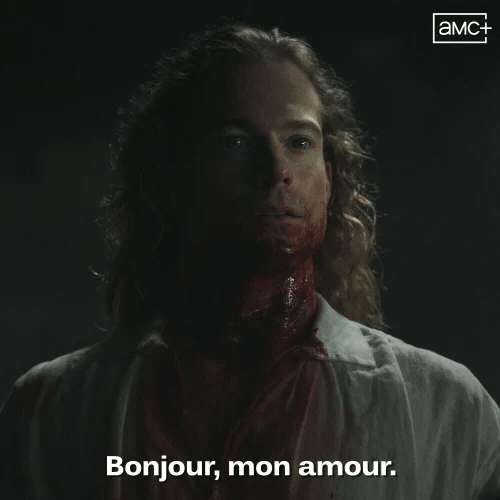
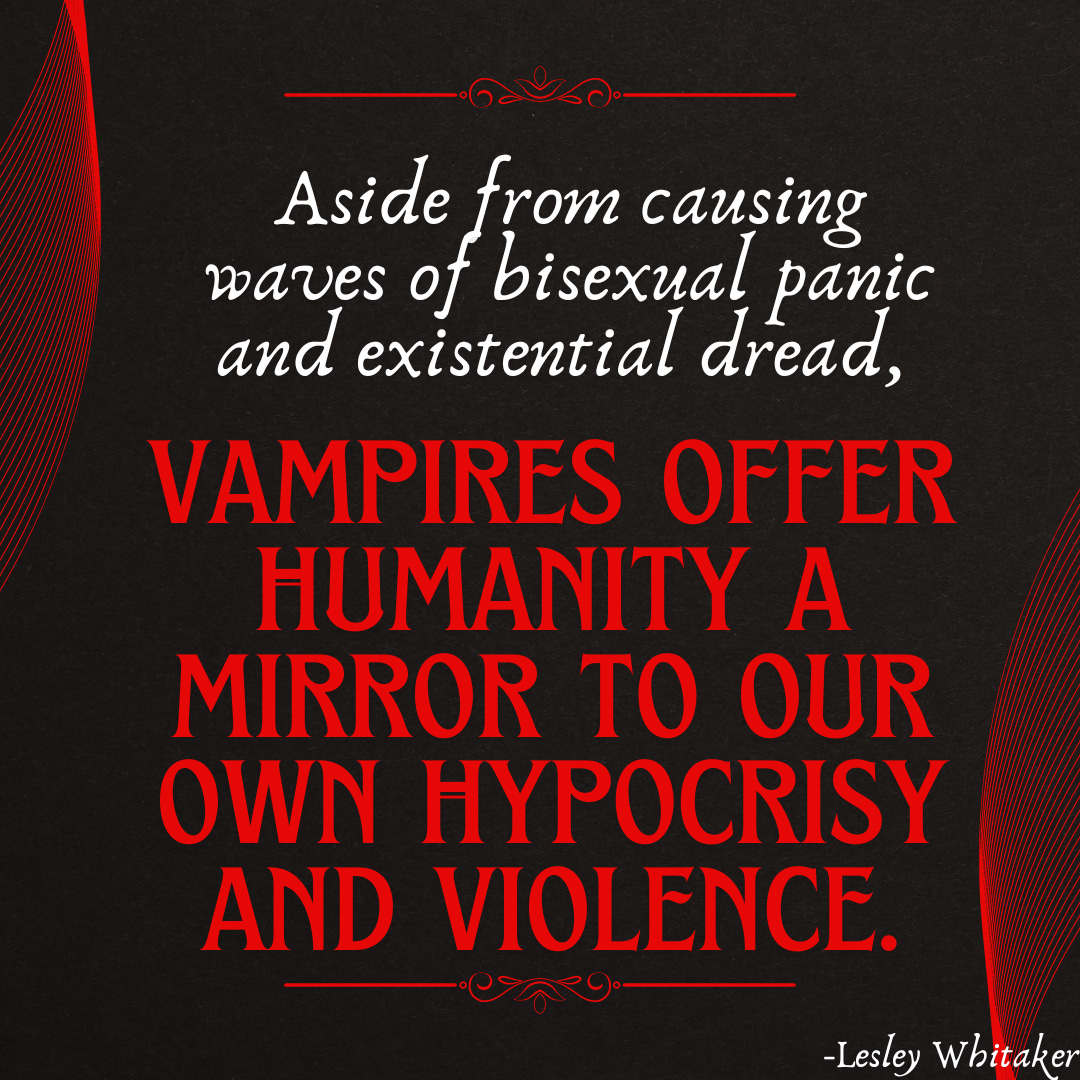
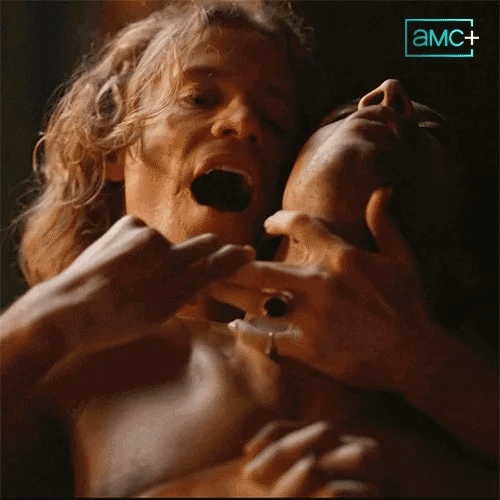
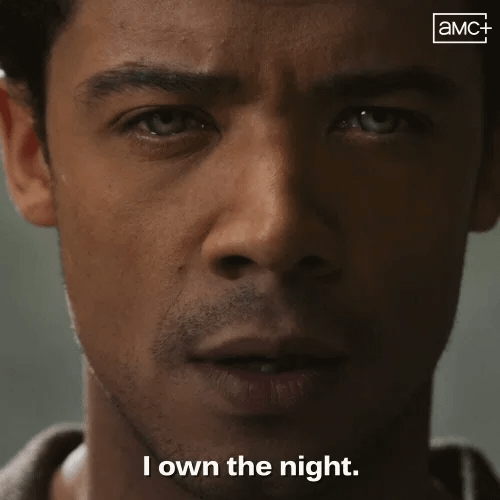
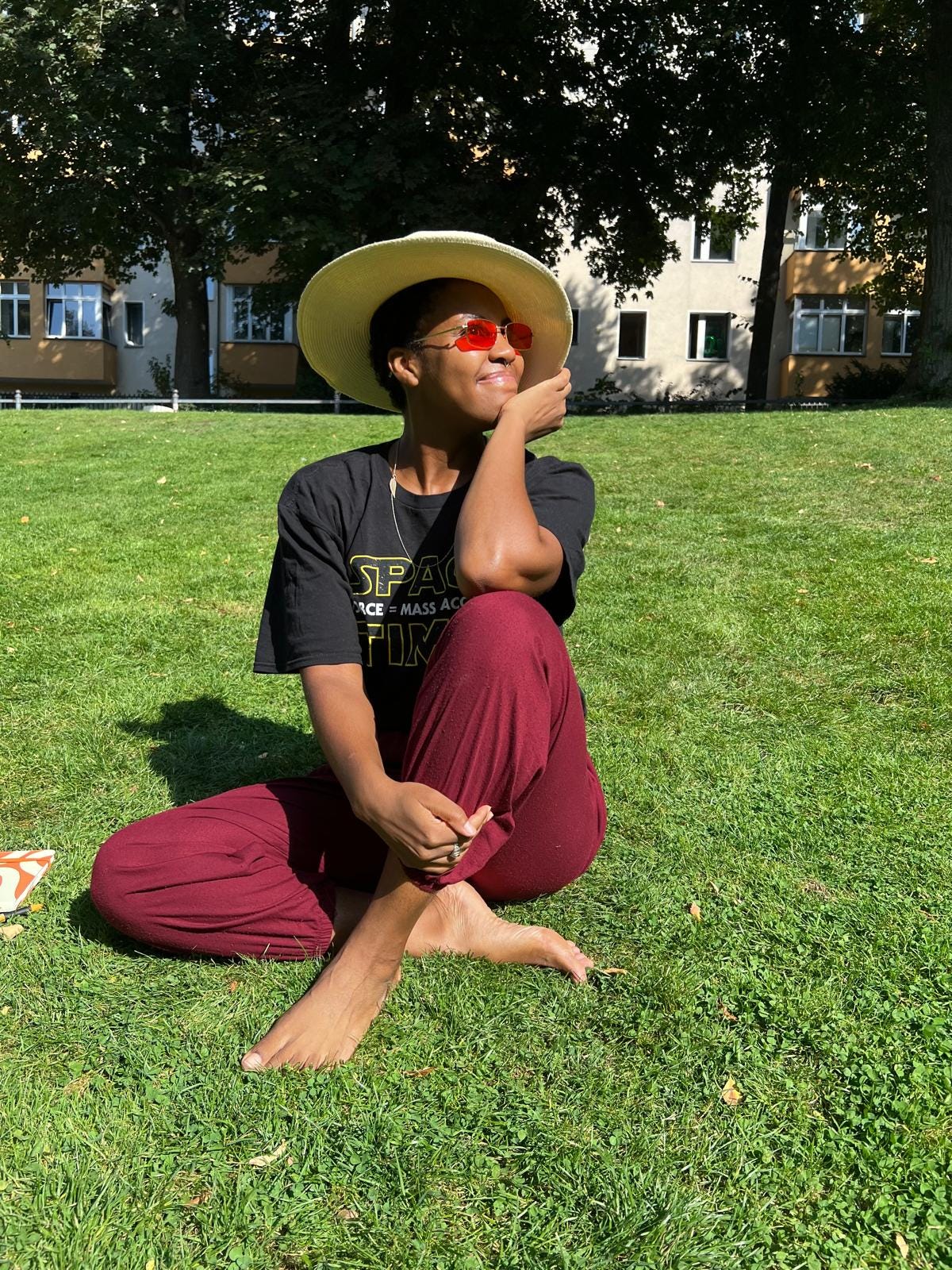
Never before have I thought so deeply about vampires… I really enjoyed your thoughts here. I can feel your passion through your words and I had a compelling window into the thematic allures of vampires. This sheds new light on all of the vampire-related literature and cinema I’ve encountered in my life. Thanks for sharing.
The section on blood - chefs kiss!! Your analysis is so insightful I love it. I just wrote about how sexy vampires and witches are, sex all day with these guys. I can’t wait to read your vampire novel 😃😃😃😃😃😃😃